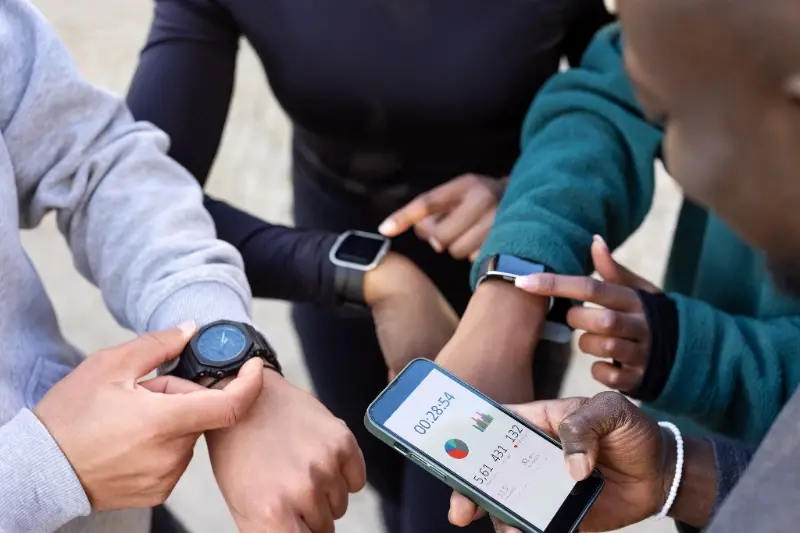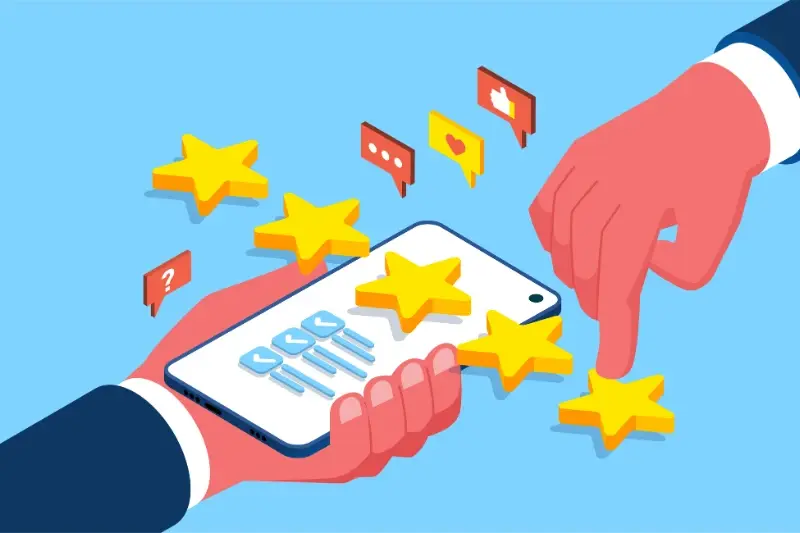The Complete Guide to Event Management App Development: From Planning to Party
Last month I was chatting to a client who runs corporate events—big fancy conferences with hundreds of attendees. She told me about this nightmare event where half the speakers showed up at the wrong time, attendees couldn't find the right rooms, and the feedback forms got lost somewhere between the registration desk and her office. The whole thing was a disaster that could have been avoided with proper planning and the right tools.
This got me thinking about how much the event planning world has changed over the years. Gone are the days when organisers relied solely on clipboards, spreadsheets, and crossing their fingers that everything would run smoothly. Modern event management requires something more sophisticated—something that can handle registrations, send updates, manage schedules, and keep everyone connected in real-time.
The best events feel effortless to attend, but that's only because someone has worked incredibly hard behind the scenes to make them that way
Whether you're planning intimate workshops, massive conferences, or anything in between, having the right event management app can transform your entire planning process. This development guide will walk you through everything you need to know about building an event planning app that actually works—from understanding what features matter most to launching something your users will love. Let's get started!
Understanding Event Management Apps
Event management apps are digital tools that help people plan, organise, and run events—from small birthday parties to massive music festivals. Think of them as your personal assistant that never sleeps and doesn't forget important details. These apps handle everything from sending invitations to tracking who's attending, managing schedules, and even processing payments.
The beauty of event management apps lies in their ability to bring order to chaos. Anyone who's tried to organise a wedding or corporate conference knows how quickly things can spiral out of control. You've got vendors to coordinate, budgets to track, guests to manage, and a million moving parts that need to work together seamlessly.
Types of Event Management Apps
Not all event management apps are created equal—they tend to fall into different categories based on what they're designed to handle:
- Personal event apps for birthdays, weddings, and family gatherings
- Corporate event platforms for conferences, meetings, and business functions
- Public event solutions for festivals, concerts, and community events
- Venue management systems for hotels, conference centres, and event spaces
Core Functions That Matter
Most successful event management apps share some common features that users expect. Registration and ticketing systems let people sign up and pay for events. Guest management tools help organisers track RSVPs and communicate with attendees. Schedule management keeps everyone informed about timing and location changes—because let's be honest, something always changes at the last minute!
Planning Your Event App Features
Right, let's talk about what your event app actually needs to do. This is where I see most people get a bit carried away—they start thinking about all the bells and whistles before they've sorted out the basics. Trust me, I've watched plenty of projects go off the rails because someone thought they needed a feature that sounded clever but wasn't actually useful.
Start with your core features. These are the must-haves that make your app worth downloading in the first place:
- Event schedules and timetables
- Speaker profiles and session details
- Interactive maps and venue information
- Push notifications for updates
- Attendee networking tools
- Registration and ticketing integration
Ask yourself this question for every feature: "If I removed this, would people still use my app?" If the answer is yes, it might not be as important as you think.
Nice-to-Have Features
Once you've nailed the basics, then you can think about the extras. Live polling, social media feeds, photo sharing—these can add value but they shouldn't be your starting point. I always tell clients to build their minimum viable product first, test it with real users, then add features based on what people actually ask for rather than what you think they might want.
User Experience Design for Event Apps
After building dozens of event apps over the years, I can tell you that getting the user experience right makes or breaks your app. People are stressed enough when they're attending events—trying to find the right room, checking schedules, networking with strangers. The last thing they need is an app that confuses them or slows them down.
Your app needs to work brilliantly for three different types of users: event organisers who are managing everything behind the scenes, attendees who just want information quickly, and speakers or exhibitors who need their own special features. Each group has completely different needs and stress levels.
Keep Navigation Simple and Fast
The golden rule? People should find what they need in three taps or less. Your main navigation should focus on the big four: schedule, maps, networking, and notifications. Everything else can live in secondary menus.
I always design event apps with offline functionality in mind—conference centres have terrible WiFi and people panic when they can't access basic information. Cache the schedule, maps, and contact details so your app works perfectly even when the internet doesn't.
Design for Real-World Usage
Remember that people will be using your app while walking, talking, and juggling coffee cups. Big buttons, high contrast text, and simple gestures are your friends here—fancy animations just get in the way when someone's trying to find the toilets quickly.
Technical Requirements and Architecture
Right, let's talk tech—this is where your event planning development guide gets a bit more serious. Building an event management app isn't like creating a simple calculator; you're dealing with real-time data, user interactions, payment processing, and often thousands of people trying to access information simultaneously. The technical foundation you choose will make or break your app's performance.
Backend Infrastructure
Your backend needs to handle everything from user registrations to ticket sales without breaking a sweat. Cloud platforms like AWS or Google Cloud are popular choices because they scale automatically when your event goes viral—and trust me, you want that problem! You'll need databases that can manage attendee information, event details, and payment records securely.
The worst thing that can happen is your app crashing when people are trying to buy tickets for a popular event
Real-time Features
Modern event apps need live updates for things like schedule changes, networking features, and push notifications. WebSocket connections or Firebase can handle this beautifully. Don't forget about offline functionality either—venues often have patchy WiFi, so your app should work when there's no internet connection. Payment integration is non-negotiable; Stripe and PayPal offer robust APIs that handle the heavy lifting of secure transactions.
Development Process and Timeline
Right, let's talk about the actual building bit—because that's where things get properly interesting! The development process for event management apps typically follows what we call an agile approach, which basically means building your app in small chunks rather than one massive go. You'll start with the core features like user registration and event browsing, then gradually add the fancy bits like live polling or networking features.
The Development Phases
Most event apps take between 4-8 months to build properly, depending on how complex you want to get. We usually break this down into discovery and planning (2-4 weeks), design and prototyping (3-6 weeks), development sprints (12-20 weeks), and testing phases that run alongside everything else. Don't expect to rush this—good apps need time to mature.
Managing Your Timeline
Here's what I've learned over the years: your timeline will change, and that's completely normal. Third-party integrations always take longer than expected, especially when you're connecting to ticketing systems or payment processors. Budget an extra 20% on top of your initial estimate—you'll thank me later when those inevitable "quick changes" pop up. The key is staying flexible while keeping your core launch date realistic. If budget is a concern, understanding the costs involved in building an event management app can help you plan more effectively.
Testing and Quality Assurance
After building event management apps for years, I've learned that testing isn't just about finding bugs—it's about making sure your app actually works when people need it most. Nothing ruins an event faster than an app that crashes during ticket sales or won't load the schedule on event day.
Your testing strategy needs to cover multiple areas. Functional testing checks that all features work properly; performance testing makes sure the app runs smoothly when hundreds of people try to buy tickets at once; and usability testing reveals whether real users can actually navigate your app without getting confused.
Types of Testing You'll Need
- Device testing across different phones and tablets
- Network testing on slow connections and WiFi
- Load testing for high-traffic situations
- Payment system testing with real transactions
- Push notification testing for event updates
- Offline functionality testing
Test your app during actual events, not just in controlled environments. Real-world conditions often reveal issues that lab testing misses.
Don't skip the boring stuff like checking what happens when someone's phone battery dies mid-registration or when the venue's WiFi is patchy. These scenarios happen more often than you'd think, and users remember apps that handle problems gracefully rather than just giving up.
Launch Strategy and Marketing
Right, so you've built your event management app—now comes the bit that makes or breaks everything. Getting people to actually download and use it. After working on countless app launches, I can tell you that having a brilliant app means nothing if nobody knows it exists.
The best launches happen in stages rather than all at once. Start with a soft launch to a small group of real event organisers who can give you honest feedback. This gives you time to fix any issues before the big reveal. Think friends in the events industry, local wedding planners, or corporate event managers who might give it a proper test run.
Pre-Launch Activities
Building buzz before launch day is where the magic happens. Create simple landing pages that explain what your app does and collect email addresses from interested users. Social media works brilliantly here—post behind-the-scenes content showing your app in development or share tips about event planning that demonstrate your expertise.
Marketing Channels That Actually Work
- Partner with event venues and suppliers who can recommend your app
- Content marketing through blogs about event planning tips
- Social media advertising targeting event organisers
- App store optimisation with relevant keywords
- Industry publications and event management websites
The key is staying consistent with your messaging and really understanding who your users are. Event planners talk to each other constantly, so word-of-mouth recommendations will be your best friend once you get the ball rolling. Following proven app development best practices throughout your project will help ensure you have something worth recommending.
Conclusion
Building an event management app isn't just about coding and design—it's about creating something that makes people's lives easier when they're trying to organise or attend events. After working on countless apps over the years, I can tell you that the ones that succeed are the ones that solve real problems for real people.
The development guide we've covered here gives you the roadmap, but the magic happens when you focus on what your users actually need. Event planning is stressful enough without a confusing app making things worse! Keep your features simple, test everything thoroughly, and never forget that behind every download is someone who just wants their event to go smoothly.
Whether you're building an app for wedding planners, corporate events, or music festivals, the principles remain the same. Start with solid planning, design with your users in mind, build with quality, and launch with purpose. The event industry is always evolving, and there's plenty of room for apps that genuinely make the whole process better. Your app could be the one that turns event planning from a headache into something people actually enjoy.
Share this
Subscribe To Our Blog
You May Also Like
These Related Stories

The Complete Guide to Agricultural App Development: Growing Technology for Modern Farms

Wearable Apps vs Mobile Apps: What's the Difference?





